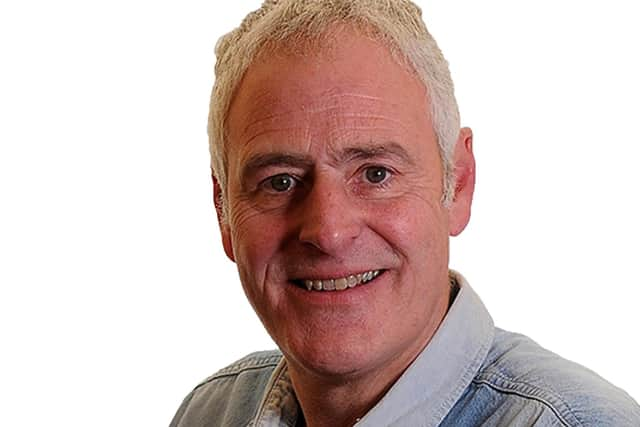£2 bus fares for Yorkshire one step forward - but two steps back lie ahead: Andrew Vine
The step forward is the introduction of a maximum £2 single fare for buses, a brilliant initiative that is bound to persuade more people to leave their cars at home.
The two steps back are that the subsidy ends in three months, and by that time bus services are likely to be facing cuts, especially in rural areas, which is very bad news for our region.
Advertisement
Hide AdAdvertisement
Hide AdThis is infuriatingly typical of the chronically short-sighted approach the Government has taken to public transport in Yorkshire.


If we want less congested towns and cities and cleaner air, there has to be consistency of approach, long-term funding and a recognition that good bus services are a central component of thriving communities, whether large or small.
Giving with one hand, in the form of cheaper fares, and then snatching away with the other by axeing them after three months, simply won’t get commuters into the habit of swapping their cars for the bus.
This is tokenism, when what is needed is strategic policy.
And it goes to the heart of levelling-up the economy in the north. Decent public transport, whether buses or trains, is essential to doing business. We only need look to London for proof of that.
Advertisement
Hide AdAdvertisement
Hide AdIf the capital didn’t have the Tube and an excellent bus network, it would grind to a halt.
Yet as in so much else, the north might as well be in a different country from London for all the attention successive ministers have paid to transport.
Bus services across Yorkshire can be patchy at best. Only last week, residents in the north of Sheffield complained of cuts to timetables and being left stranded at stops when buses fail to turn up, a deplorable state of affairs for one of England’s biggest cities.
And talk to anybody who lives in the market towns or villages of rural North and East Yorkshire and they will most likely tell you that buses are so infrequent that using the car is the only convenient way to get around.
Advertisement
Hide AdAdvertisement
Hide AdThere is no lack of willingness to use buses, provided they are reliable and affordable. In West Yorkshire, where I live, the £2 fares were introduced late last year thanks to the region’s mayor, Tracy Brabin, and the services which run from close to my home have been noticeably busier as a result.
I’ve been amongst the passengers using them instead of the car much more often, and it’s saved a lot on parking and fuel, which matters when the cost of living is squeezing my household budget.
Whether I continue to use the bus when the fares increase again is uncertain, and that’s shared by other passengers I’ve got chatting to.
What is certain is that by the end of this new year, our bus services are going to be worse than at its start.
Advertisement
Hide AdAdvertisement
Hide AdThe Campaign for Better Transport estimates that up to 20 per cent of services might be cut over coming months, as operators struggle to make routes pay in the face of fuel costs that have risen by 25 per cent.
That will come on top of the loss of about a quarter of routes in England over the past decade, with rural areas suffering the worst cuts.
The threat to services in parts of Yorkshire was starkly illustrated only weeks ago, with the warning that the iconic 840 Coastliner from Leeds to Whitby faces the axe without an injection of cash from North Yorkshire Council.
Here is a route voted the best in Britain for its breathtaking journey through the North York Moors National Park, a service that is a tourist attraction in itself and also vital to bringing visitors to the places along the way that it serves, among them Pickering, Thornton-le-Dale and Goathland.
Advertisement
Hide AdAdvertisement
Hide AdThere will be other services at risk, less high-profile but equally important to Yorkshire communities. Their loss erodes the quality of life in towns and villages, making it harder for older people especially to get to the shops and doctors’ appointments, or visit family and friends.
The Government is pleasing nobody with its attitude towards buses, however much it pays lip service to the need for good services. Passengers are frustrated and so are the bus operators, who rightly complain that a lack of certainty over funding makes it impossible for them to plan and invest in routes.
Two years ago, the Government made a lot of fanfare about a national £3bn investment in buses.
Half of that was swallowed by emergency Covid bailouts for operators, and that means it is time for ministers to make a new commitment to supporting services by continuing to subsidise fares beyond spring. It is no less than Yorkshire’s passengers and their communities deserve.